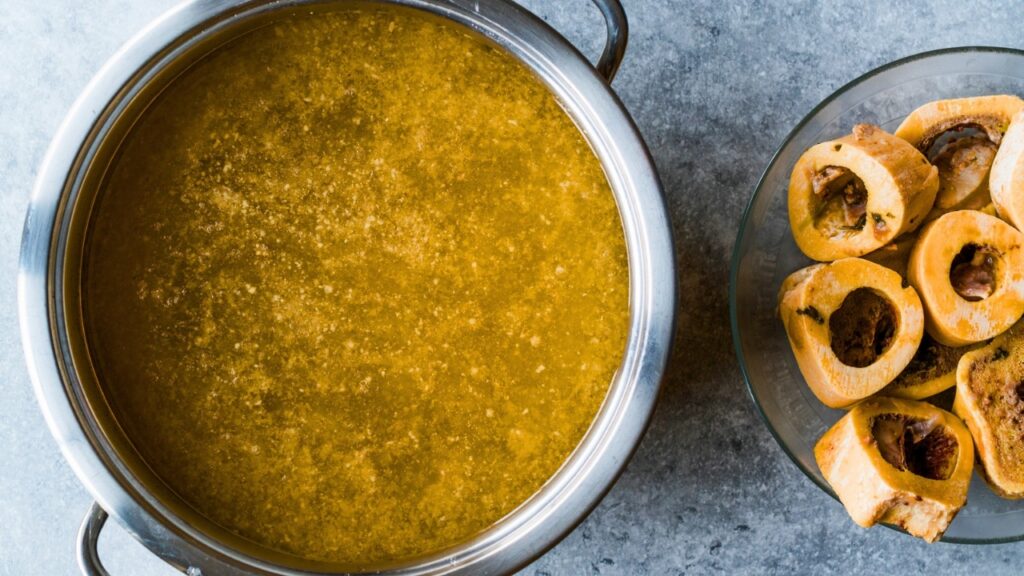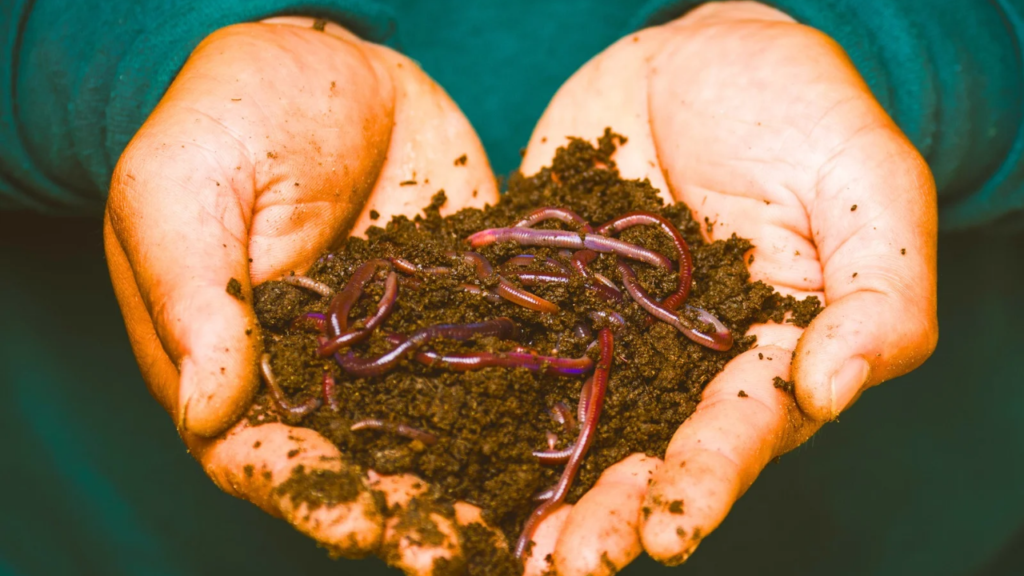Occasionally, you may notice that your plants are having difficulty growing. Your plants are not doing well if you see that the leaves are falling off or changing strange hues. If you are not employing the proper gardening procedures, this could occur.
The fertility of the soil cannot be compromised; the structure of the soil is crucial for vegetable plant productivity. You must adjust the soil where your plants are growing if you look at such a condition.
The best method to maintain the health of your soil and ensure that your plants have access to all the nutrients they need is to use organic fertilizer.
Organic vs. Synthetic Fertilizer

Your vegetable plants will stop growing and won’t produce the vegetables you need if they don’t receive the necessary nutrients. Your plant won’t suffer if your soil is healthy.
You may make the soil perfect for your plants by using fertilizers to make up for the deficiencies in the soil. The three primary nutrients that plants require are nitrogen, phosphorus, and potassium. We’ll now go over the distinctions between synthetic and organic fertilizers.
Because synthetic fertilizers function so quickly, you may observe your plants growing quickly. The quality, texture, and fertility of the soil will all improve with the addition of synthetic fertilizer.
These fertilizers dissolve in water and are readily absorbed by the soil. Applying too much synthetic fertilizer can burn your vegetable plants, so you should minimize fertilizer use as it will waste all of your hard work.
The primary disadvantage of synthetic fertilizer is the presence of salts that cause your soil to become acidic. It indicates that organic gardening has superior alternatives.
The main benefit of using organic fertilizer is that it won’t burn your vegetable plants if you apply it correctly. Microorganisms will be stimulated after the soil has been fertilized with organic fertilizer.
Additionally, it will strengthen the soil’s structure. As you are aware, organic fertilizer is transformed into soluble nutrients by soil bacteria. Vegetable plants readily absorb these nutrients.
Considerations for Organic Vegetable Fertilizer
You must take a few things into account before choosing any organic fertilizer for your vegetable crop. To choose the best organic fertilizer for your vegetable plants, you must first do a soil test.
You will know what nutrients the soil requires after a soil test. Plant development can be enhanced by using the appropriate organic fertilizer. The following factors can be better understood with the use of a soil test.
TEXTURE OF SOIL

Your vegetable plants’ ability to grow depends greatly on the soil’s texture. Your soil may be sandy, clay, silty, or loamy. You have to grasp the texture and think about how you may improve it so your plant tries well.
pH LEVEL

The pH level of the soil tells that your soil is acidic or alkaline. On the pH scale, there are 14 points. If the pH level of the soil is zero it signifies it is severely acidic and 14 shows that your soil is alkaline.
A pH of 6.5 or 7 indicates that the soil is neutral, meaning it is neither acidic nor alkaline. The soil can be amended to suit your plants’ requirements.
NUTRIENTS

The three main nutrients that plants require are potassium, phosphorous, and nitrogen. The letters N-P-K stand for each of these nutrients. Your plants require these essential nutrients in order to develop.
10 Natural Vegetable Garden Fertilizers
Vegetable plants take up all the nutrients from the soil when they are grown in your garden. You must replenish those nutrients when you begin planting new crops in the spring.
Fertilizer is a nutritional supplement that must be added to the soil in order to maintain its fertility level. You must determine what kind of nutrients your plants require and what soil deficiencies exist before applying fertilizer.
1. COMPOST

An organic fertilizer, compost, creates good bacteria and fungi for your plants. As we explain, vegetable plants require organic fertilizer, which is made to improve the fertility and health of your soil. Chemical fertilizers are not necessary when using compost to improve the health of your soil.
Early spring is the ideal time to apply the compost to your veggie plants. One thing you should know is that compost releases nutrients into the soil gradually since it decomposes extremely slowly.
However, if you use chemical fertilizer that dissolves in water, you will see results quickly.
2. ANIMAL MANURE

Animal dung is another inexpensive organic fertilizer that may be applied to the soil to improve its quality. By adding animal manure to your soil, you can improve the growing conditions for your vegetable crops.
The type of animal dung you are utilizing will determine the macronutrients you can obtain from it. Animal dung that is hot and fresh should never be used on vegetable plants since it can burn them. It is advisable to utilize old manure that might aid to make your soil more rich.
You should not worry about the texture of this soil because it will not alter after adding the animal manure. Fall is the ideal season to apply animal manure to your vegetable garden.
In order to integrate the manure into the soil, it is preferable to spread it evenly. Any waste from other animals, including humans, dogs, cats, and goats, cannot be used.
Instead, you consider the types of animal manure that are suitable for your vegetable crops. Goat, cow, horse, sheep, and poultry manures are all suitable.
The nitrogen content of chicken dung is high. It can be applied to plants that require additional nitrogen to grow. Goat dung doesn’t smell as bad. Cow manure is excellent since it has a low nitrogen content, which prevents your plants from burning.
3- BONE MEAL

This organic fertilizer is manufactured from creamed animal bones, as the name suggests. Your plants will grow stronger and healthier when you use this organic fertilizer in your food gardens. Remember that not every circumstance calls for the use of bone meal.
Chemical fertilizers are not necessary when using bone meal for your plants. Bone meal is a major source of iron, magnesium, and zinc for your plants.
The soil’s structure and quality will gradually improve, and your vegetable plants will yield more nutritious crops for you. It won’t burn your plants if you use extra bone meal for them.
It is advised that you do a soil test prior to adding bone meal to your vegetable plants. The kind of nutrients your soil requires can be determined by a soil test.
Three cups of bone meal are sufficient for 100 feet² of soil. Using bone meal on a regular basis is not necessary for your plan.
4- BLOOD MEAL

You might be surprised to learn that you can utilize animal blood to enrich your soil. It is a byproduct and an organic fertilizer.
Any animal that is killed for its meat can have its blood used. Blood meal is incredibly simple to use. To produce powder, take the blood and dry it. It provides a high amount of nitrogen with phosphorus and potassium which is healthy for your plant.
Blood meal can be used if your plants require nitrogen to flourish. The optimal time for spreading blood meal to the soil of your vegetable garden is in April.
During the growing season, you can reapply it every two to three months. A hundred square feet requires one to two pounds of bone meal. Use no more than 1 pound of bone meal if this is your first time using it.
5- WORM CASTING

Worm throwing is the waste of earthworms. This is an organic fertilizer; you may also call it warm poop or worm-casting manure. The nourishment of worm casts is compost, and they make the soil richer via their waste.
Worm casting aids in enhancing the soil’s drainage and aeration. Your vegetable plants will grow more readily when the soil’s quality improves.
Worm casting also helps keep other pests away from your food plants, like spider mites and aphids.
As you know, these small creatures cause an unsettling situation for your vegetable plants. Worm casting is an organic fertilizer that works best and won’t damage your plants.
6- FISH EMULSION

Fish oil and fish-based industries’ byproducts are used to make another type of organic fertilizer. Another name for this organic liquid fertilizer is fish fertilizer.
It needs to be diluted with water before use. You can mix two tablespoons of fish emulsion with one gallon of water. Deodorized fish emulsion, which doesn’t smell very strong, is now also on the market.
The optimal period for utilizing fish emulsion in your vegetable garden is in early April. Fish emulsions contain a significant level of nitrogen. Nitrogen can burn your plants, as you are aware. Excessive amounts of fish emulsion can harm your plants.
7- SEAWEED FERTILIZER

An organic fertilizer is seaweed. Numerous nutrients, including potassium, magnesium, iron, zinc, and nitrogen, are present in seaweed fertilizer. The health of vegetable plants benefits from all of these nutrients.
To make up for their nutrient deficiencies, plants require fertilizer. Seaweed is a naturally occurring organic fertilizer that helps vegetable plants develop more quickly during the winter months when plant growth slows down. You can apply seaweed fertilizer at this point.
You can avoid stunning your plant by spraying seaweed liquid fertilizer over its root ball when you are transplanting it.
This fertilizer can be combined with water to create a liquid spray. This arrangement is excellent for your little houseplants or herbs.
8- ROCK PHOSPHATE

Rock phosphate is a mined rock that comprises limestone, clay, and phosphorus. For your plants, rock phosphate provides a rich organic supply of phosphorus.
It will promote the development of robust flowers on your veggie plants. Using rock phosphate improves the flavor of your edible plants and protects them from pests and many diseases.
After that, you are moving your plants, digging holes in the earth, and fertilizing them with rock phosphate. When there is a phosphorus shortage in the soil, organic fertilizer performs well.
For five years, your vegetable garden won’t require phosphorus in the soil after applying rock phosphate.
9. GREEN SAND

Green sand, a slow-releasing fertilizer with a variety of organic nutrients for your vegetable plants, is another organic fertilizer. This blue-green substance is also known as glauconite.
Silica, iron oxide, marine potash magnesia, phosphoric acid, and lime are all found in green sand.
One of the numerous advantages of using green sand in your vegetable garden is that it will strengthen the soil’s structure.
This organic fertilizer gives your vegetable plants all the nutrients they need while promoting root growth. Remember that this fertilizer is not soluble in water. Applying it directly to the soil is preferable to combining it with water. Early spring is the best time of year to add green sand to your soil.
10. BAT GUANO

Bat guano, another name for bat dung, is an organic fertilizer. Your plants will grow stronger and healthier once you use this fantastic manure fertilizer.
After applying bat guano to your food garden, your plants begin to produce more blossoms. This fertilizer comes dry, but you can dissolve it by mixing it with water.
It turns into a slow-release fertilizer with a lot of nitrogen when you mix it with water. When applied to your plants, it promotes vigorous vegetative development and shields them from numerous fungal illnesses.

